Christmas season is a special occasion dedicated to family time and celebrating shared happiness. With all the Christmas lights, carols...
Yago School has designed an ambitious educational project with the objective that students have integral, differentiated and exquisite formation at the end of this educational stage, which is why the teaching process is enriched with a great variety of methods, programs, and educational, cultural, sports, artistic, humanitarian, environmental, and recreational activities.
The Primary stage of our school covers ages 5-6 to 12 years old and covers six academic years from first to sixth of Primary School. At this stage, the academic curriculum is broader than in Infant, and homework plays an important role in stimulating students’ personal growth, independence, and autonomy.
The fundamental objectives of this stage at Yag School are:
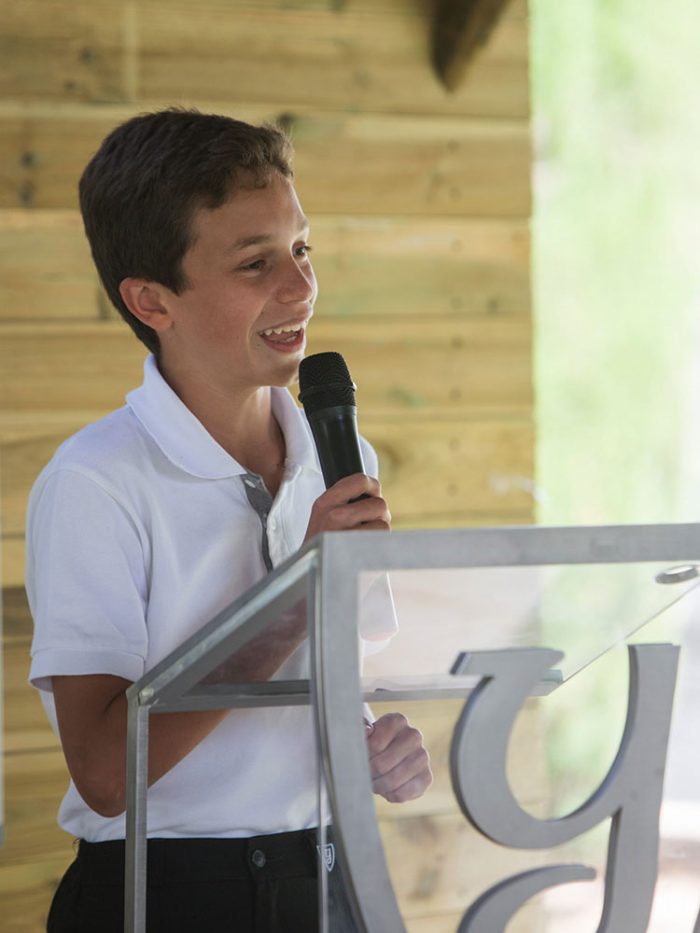
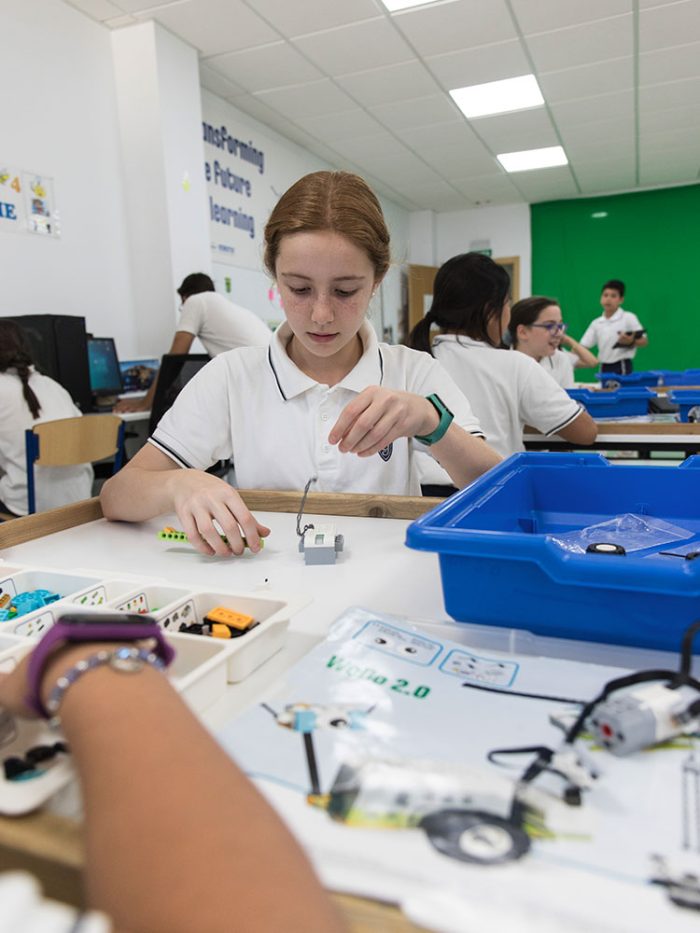
The IB Primary Years Programme is a curriculum framework for pupils aged 3 to 12, so it encompasses our current Infant and Primary stages. It is based on a philosophy that recognises a child’s natural curiosity, creativity and capacity for reflection, not only focusing on academics, which we believe is also very important, but focusing on creating citizens with a set of skills and valuesthat they will know how to use in the future. It is a very flexible programme, so it accommodates all the requirements of our national curriculum which we will continue to work with.
With the PYP we work through the units of enquiry, which weave together ideas and skills from different areas such as:
The PYP works through the units of enquiry, which interweave ideas and skills from different areas such as: Language, Social and Natural Sciences, Mathematics, Arts, Personal, Social and Physical Education, ICT…etc.
This approach encourages students to make their own connections between what they know and how it relates to the world around them, that is, they relate their prior knowledge to the new knowledge they will construct.
Children construct their own learning, they are inquiring, questioning, investigating through their interests. This enquiry leads them to ask themselves questions, which will lead to many more, so the circle of enquiry does not really end. Teachers do not just give concrete answers but encourage pupils to be thinkers and to question. The PYP is implemented throughout the school and teachers adapt its content to meet the learning needs of all students.
We understand that the use of English is fundamental in the increasingly globalized world of today. For this reason, bilingualism is one of the fundamental pillars of our educational project. Students at Yago School are accustomed to using English as a vehicular language from the moment they join the school. English, Drama, Public Speaking, Natural Science, Social Science, Art, Music, P.E., and ICT are all taught in English. In addition to English Language and Literature, we prepare students for the official Cambridge external exams held in PYP 5, 6, 7 and 9 (Primary 2, 3, 4 & 6) in which they achieve excellent results year after year.
We all know that Mandarin Chinese is a language that is on the rise and will be increasingly valued in all sectors, including our own, Education. That is why at Yago School we offer a suitable programme for our students from the age of 2 years old.
Our aim in Primary is to ensure that students finish this beautiful stage with a solid foundation in the language so that they can continue to progress and with the basic knowledge to be able to communicate in simple, everyday situations that surround them.
In addition to sharing with them knowledge of Chinese culture and language, we also prepare them for the internationally recognised official exams, the YCT and HSK. From PYP 6 (Primary 3), our students take YCT 1, with the aim of progressing to YCT3 at the end of PYP 9 (Primary 6), a level equivalent to A2 recognised by the CMER.
"One of the objectives of Yago School is that our students finish PYP with a B1 level of English and a high level of knowledge certified by the Confucius Institute of Chinese".
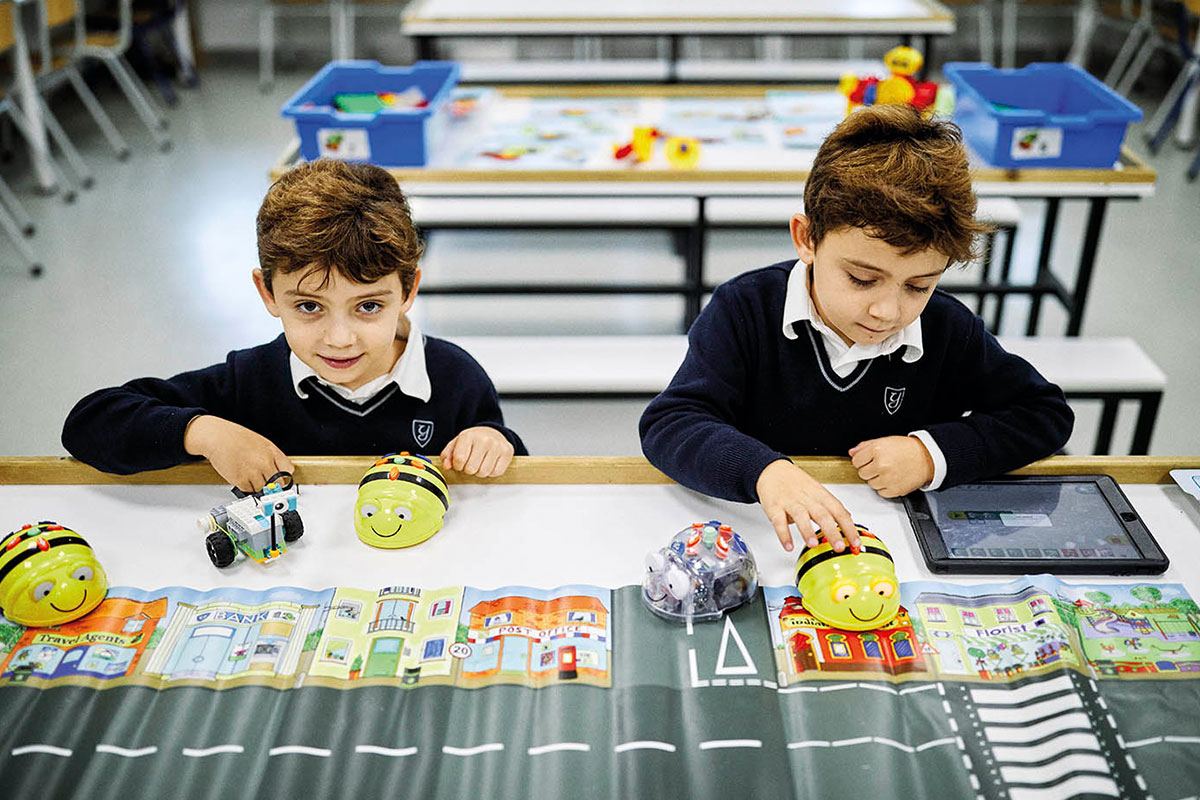
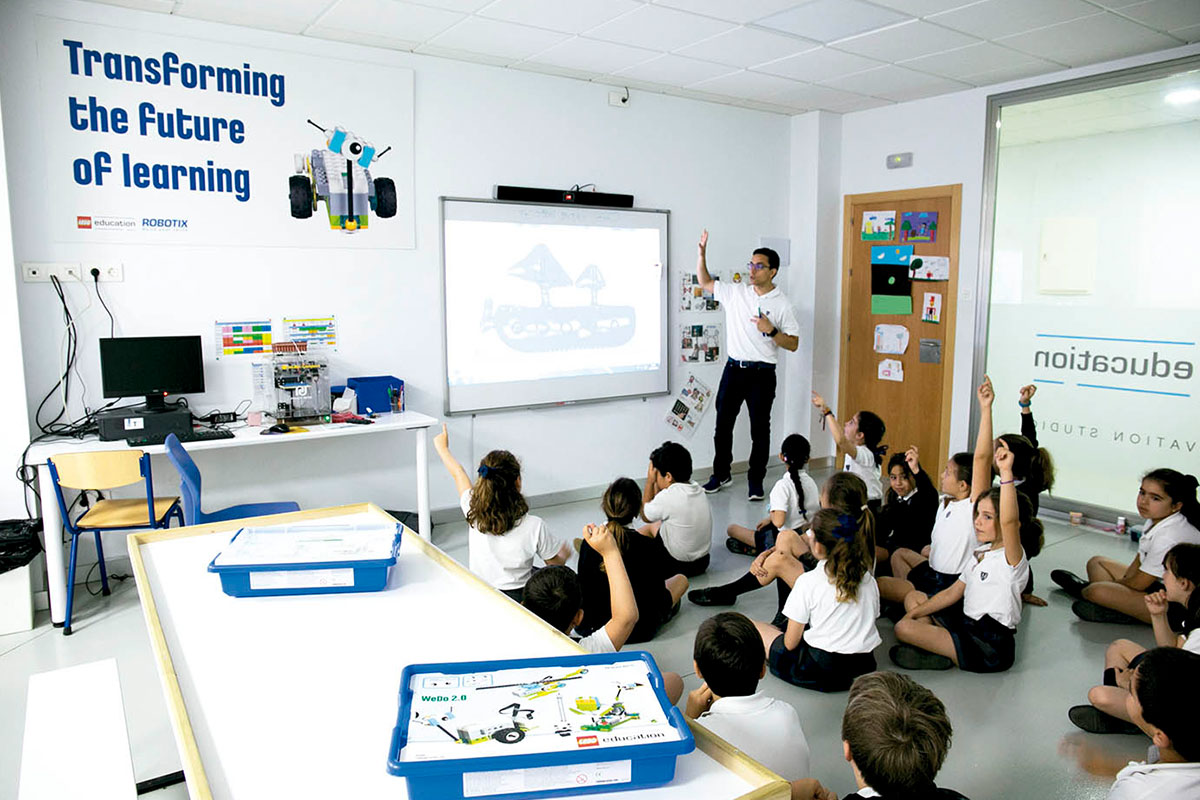
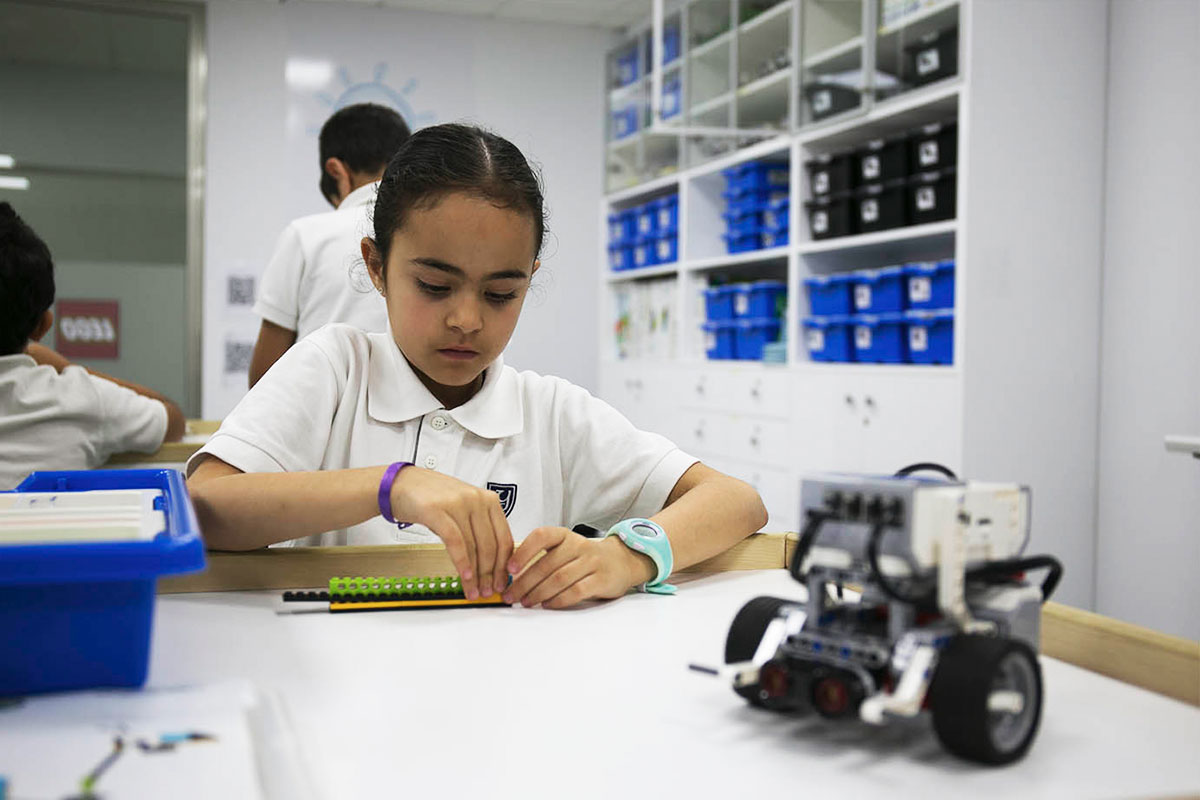
"All Yago School students receive a personal iPad in PYP 7 as part of our YProject which allows them to use it in the classroom and at home as a tool for consultation and research and production of projects of all kinds."
We are conscious of the relevance of educating our students in Science and in the use and integration of New Technologies as fundamental tools in the learning process and in their daily lives. For this reason, our school promotes STEAM methodologies that integrate science and technology in the daily tasks of all subjects and specifically in Natural Science, Mathematics, Art, ICT and Design and Technology.
Students from PYP 4 to PYP 6 (Primary 1 to 3) use a wide range of technological devices in the classroom, which include iPad packs, whiteboard with cannon and apple tv, connections of all kinds; and in the laboratories specially designed for the ICT training of the youngest students with Lego kits, Bee Bots, 3D printers and computer equipment. From PYP 7 onwards (Primary 4) we give each student an iPad mobile device as a fundamental part of The YProject, a project to develop the digital competence of the students which favours a methodological change adapted to the current needs of our students.
Music is the language of excellence. It is universal. It is the art of emotion and goes where a word or an image cannot reach. All students in Primary receive two hours of Music a week, and four important areas are worked on: auditory training, vocal training, instrumental piano practice, and Music Theory (Musical Language).
This subject is taught by professional teachers and musicians, who do their best to make our students vibrate with music and become producers of emotions through such.
All students are given the possibility to perform in weekly assemblies, concerts, recitals, Music Week, and the Christmas and Summer Shows. Any time is a good time to express and demonstrate everything they know and feel through music.
Art is in most schools a secondary activity. At Yago School, we believe that it is essential and that it helps develop creativity, reinforces quality of learning, stimulates cognitive skills, and allows students to imagine, express themselves, and communicate.
"At our school, all our students study piano from the age of 6 as it helps to develop language and reasoning, memorisation, coordination and perhaps most importantly, it improves their emotional development."
Primary students move to a magnificent Art Room surrounded by glass and equipped with materials and resources that allow them to develop their artistic and aesthetic skills with paint, plaster, and ceramics.
In addition, the program of the subject of Art in Primary at Yago School continues with the program to promote cultural sensitivity, started in Infant, which brings our students closer to different artists and artistic trends. Throughout Primary, students get to know and imitate the techniques and styles of artists such as Matisse, Botero, Goya, Gaugin, and Delanuy.
Yago School endorses UNESCO, which “highlights the importance of art in the creation of sensitive, empathetic and creative human beings who develop an important key element of social interaction”.
Within our project, Physical Education (P.E.) is understood as a vehicle to transmit values related to companionship, health, healthy competitiveness, effort and personal sacrifice as tools for improvement.
The subject of P.E. comprises three hours per week and the Yago Physical Education department seeks to work on students’ skills and motor development through different sports, circuits, games, and activities.
Students work on the motor level, and thus improve gross coordination, fine coordination, reflexes, laterality, and aerobic condition, adapting circuits to the exercises and sports practice depending on the age of the student.
At school, we have large spaces, sports pitches, artificial turf soccer fields, and a sports pavilion for recreation and sports practice.
We focus on the advantages associated with team sports, such as cooperation, respect for classmates, and turn taking.
The final objective is always to offer content that motivates students, and to ensure that they know the history and why sports are practiced all over the world, allowing for their motor development and a progressive fondness for sports and physical activity.
In addition to the P.E. hours, Primary students at Yago meet in the Concert Hall weekly for assemblies. Each session is unique and is carefully prepared by the faculty.
Each fifteen days we have a sports assembly with events such as gymkhanas or biathlons, and students also strengthen their English language skills.
"Every month our students practice different sports from around the world such as: football, basketball, volleyball, baseball... which allows them to learn different cultures and disciplines at the same time as they practice physical education".
Traditional and avant-garde values preside over the day to day life at Yago School.
In Primary, teachers take advantage of “Tutor Time”, a module that takes place from 8:35 to 9:00 just before the start of each school day, to work on students’ emotions and values.
On a weekly basis, Primary students meet in the Concert Hall to have an assembly. This is a participatory meeting where all students have the opportunity to express their experiences and opinions on the theme of the day, developing their oral and artistic expression skills in front of an audience of teachers and classmates. Each session is unique and is carefully prepared by the teaching staff, and at least once a month the value proposed for that month is discussed in depth.
In addition to these specific activities, everyone at Yago School takes advantage of all subjects, spaces, and events to reinforce values which are so important for the integral development of children.
Finally, in the subjects of Religion and Values, students work on the values that will help them grow as complete and responsible people and citizens.
At Yago School, all English teachers are native English speakers. We also employ native or bilingual teachers for other subjects taught in English. All teachers have a C1-C2 level and cannot use Spanish at all throughout the school day.
Yago School has a large Couselling Department composed of two psychologists and two therapeutic psychologists who attend to all students, making assessments, attending to their emotions and specific needs, leading the school’s anti-bullying program, and providing support, reinforcement or enrichment to all students who need it, and organizing both curricular adaptations and enrichment of subjects.
The Primary timetable is identical to that of the rest of the school, except for the periods of access to the dining room-restaurant. Classes begin at 9:00 a.m. and end at 5:00 p.m. every day, Monday through Friday. The doors open at 8:35 a.m., however, and students are free to stay with their tutors in the classroom until 9 a.m. Around 11 a.m., they have a half-hour break for snacks and outdoor games and go down to lunch between 1:30 and 2:15 p.m. After lunch, they enjoy 30 minutes of playtime at recess before continuing classes. In the afternoon, a snack is served to the Primary 1 and 2 students.
Each student at Yago School pays an annual amount for the supplies that the school provides throughout the year: notebooks, photocopies, pens, paints, folders, compasses, rulers, cardboard, etc. Therefore, they should only bring a pencil case to store the material that is given to them.
Yago School stands out for its individualization and personalization of the teaching-learning process. In this subject, when children fall behind the level of English required in each course, they must receive specific English support in very small groups, two days a week during school hours at an extra cost, which helps them to reinforce those linguistic areas where they have more difficulty.
Students who join Yago School from Primary 2 onwards with a lower level than that of the school must receive these English support classes.
“My children go to school happily and I am not surprised, because the teachers are very professional, vocational, cheerful, and affectionate.”
“I switched my children to Yago School and from the beginning, both they and I felt part of this truly bilingual international project.”
“The best thing is to see how they educate my children day after day, how they take care of their emotions, how they care about teaching them values, and also how they inspire them to express themselves through artistic activities.”
Do you want to know more about our School? Don’t miss out on our blog with articles related to the activities of our School.

SENIOR SCHOOL
Av. Antonio Mairena, 54,
Castilleja de la Cuesta,
41950 Sevilla
+34 955 51 12 34
secretaria@yagoschool.com
NURSERY
C. Geranio, 1
Castilleja de la Cuesta,
41950 Sevilla
+34 954 16 58 86
nursery@yagoschool.com